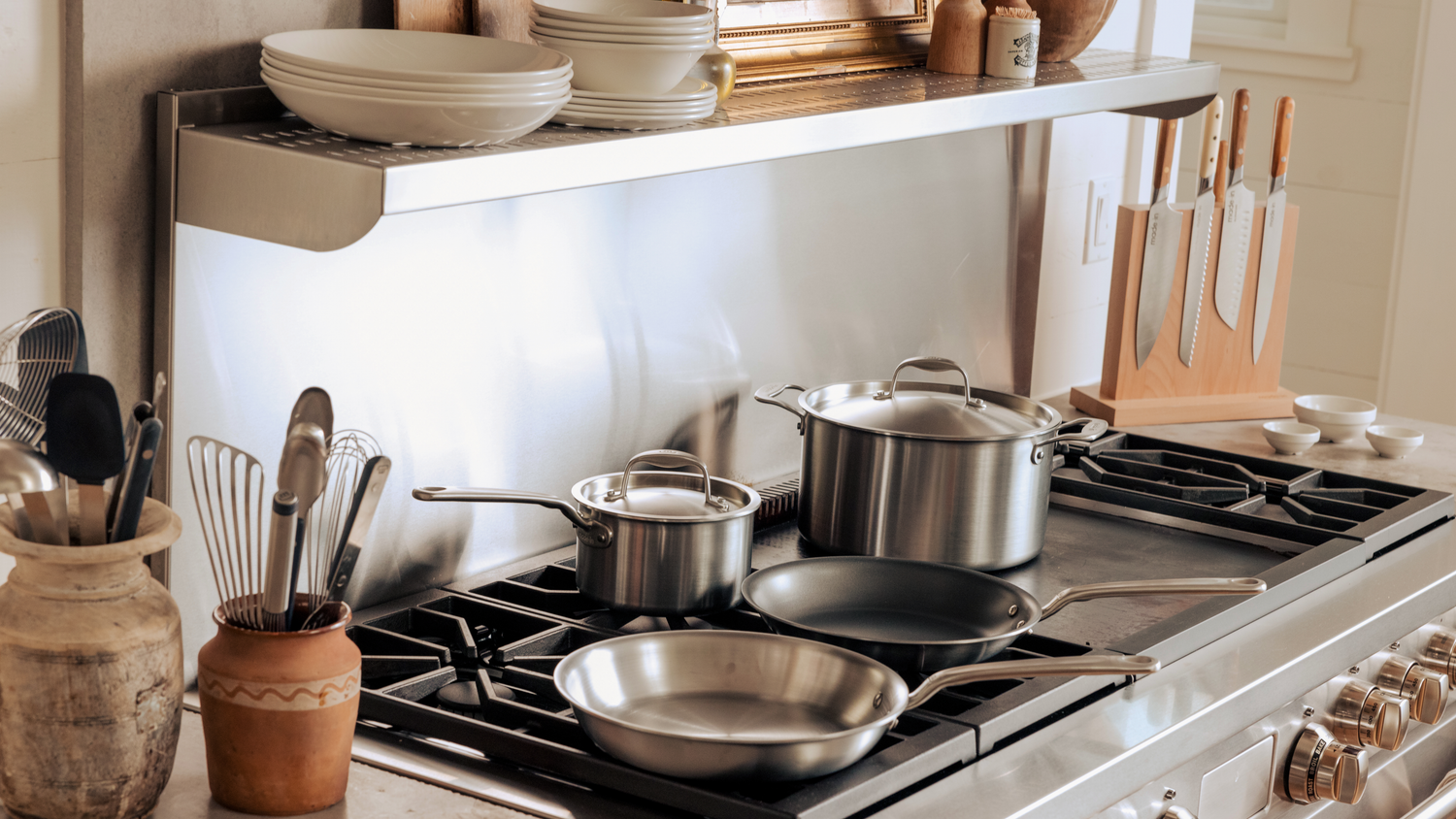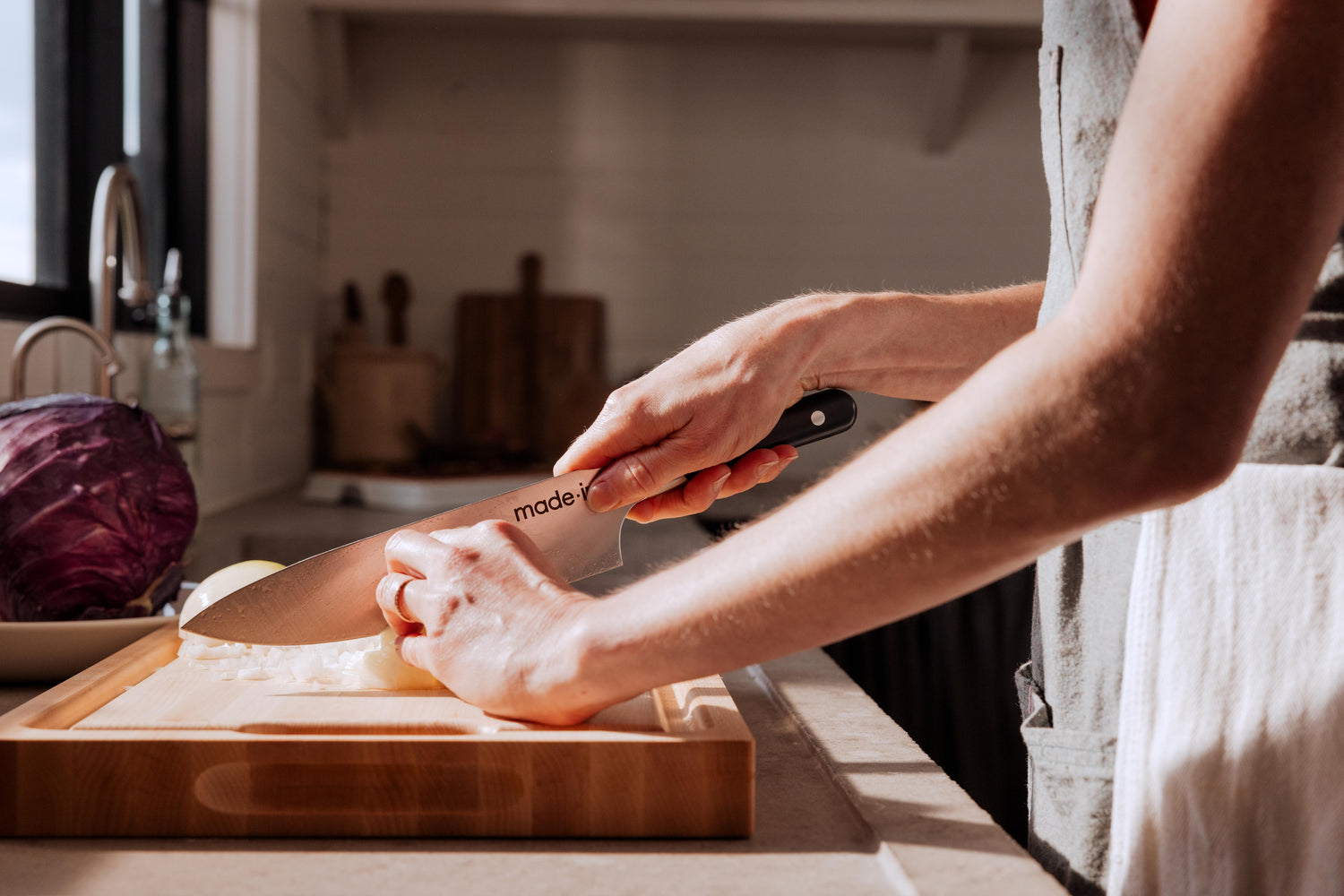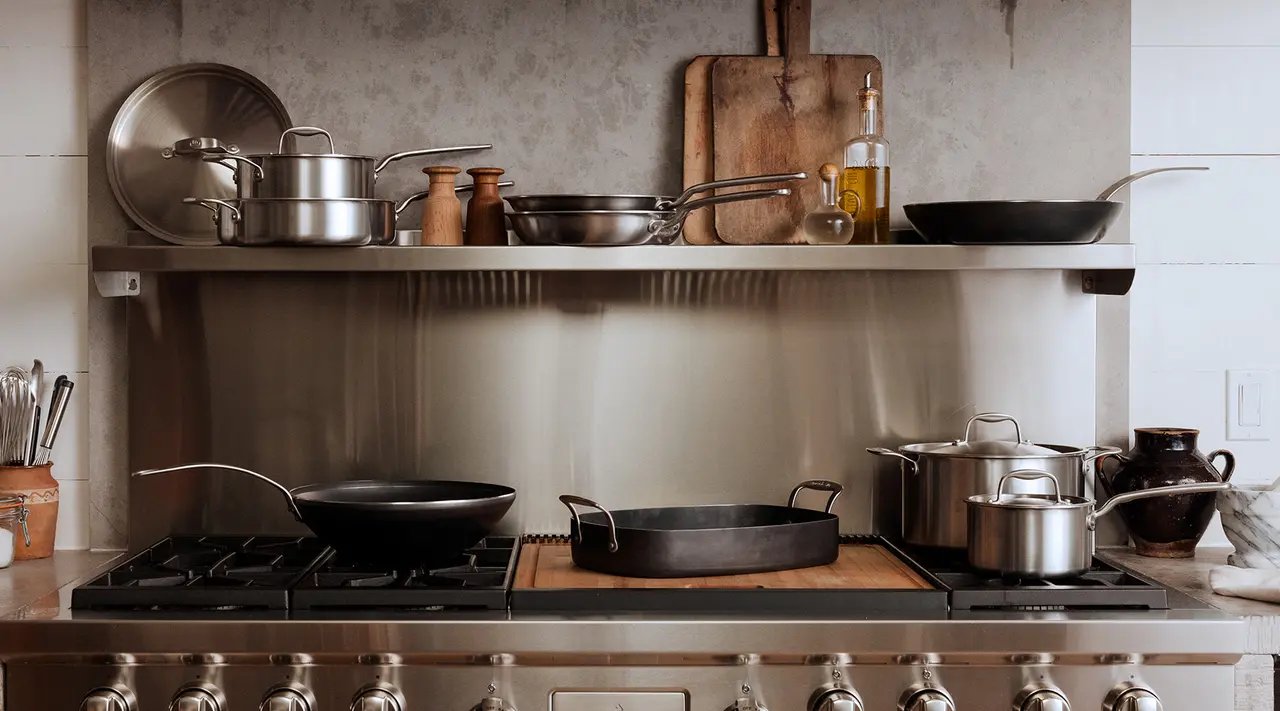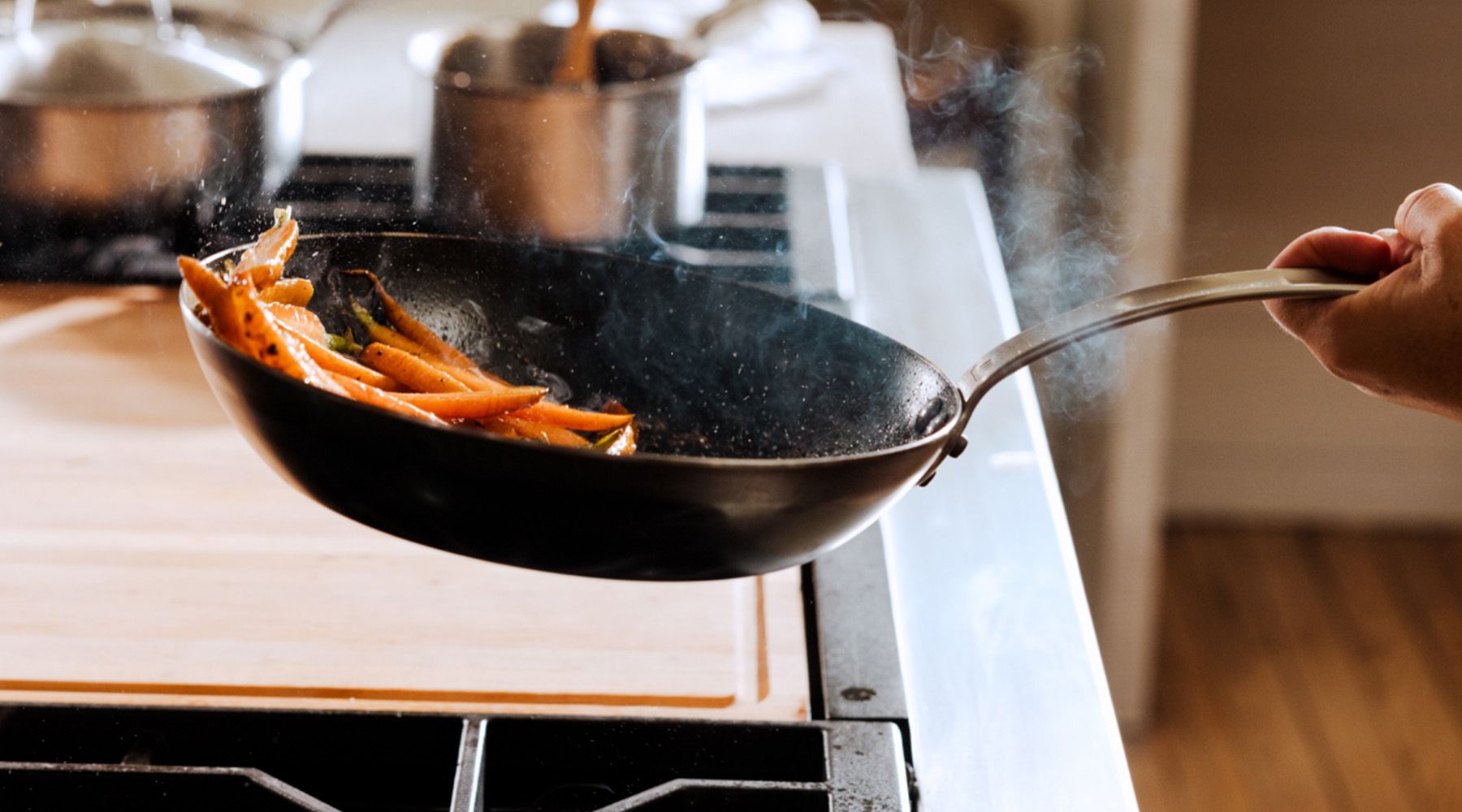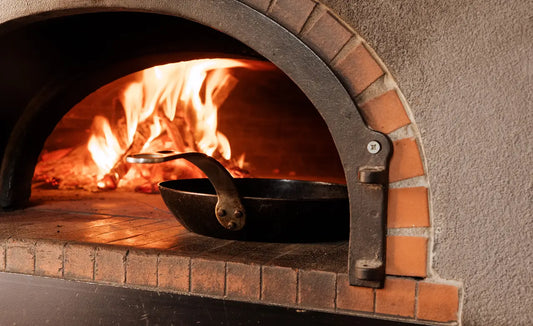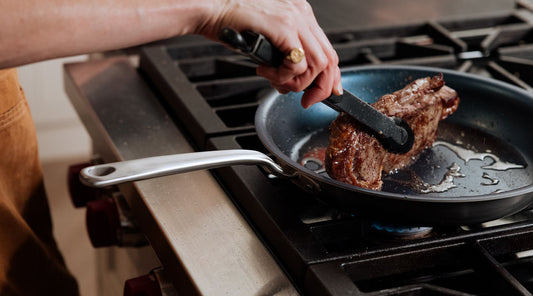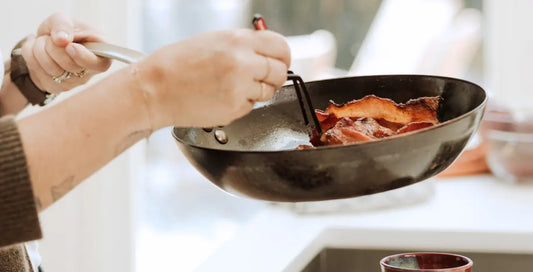Carbon steel cookware is exceptional in a lot of ways—not only does it sear just as well as cast iron, but it also conducts heat even more evenly across its naturally non stick surface.
Much like cast iron, carbon steel is also more finicky to clean than materials like stainless steel or non stick. Scrub too hard while using the wrong tools and you can easily damage the seasoning you’ve worked so hard to build up. To help guide you—and to help you steer clear of some of the more common pitfalls—we’ve created a hands-on guide to cleaning your carbon steel pan.
Method One: Wipe It Out
Always start with this step. No matter how intense a mess you’re looking at, your first order of business should be to wipe out your pan once it’s cooled with a paper towel, kitchen towel, or microfiber cloth—no water or dish soap required. This is a quick, easy way to clean your pan that preserves your seasoning, and should be enough to clean up after a fast dinner that didn’t leave behind any stubborn residue.
If this method isn’t doing the trick, it’s time to add some elbow grease.
Method Two: Coarse Salt and Oil
If you’re looking at some stubborn residue or fried bits that seem eternally stuck to your pan (even after giving it a thorough wipe), break out a neutral oil (like grapeseed or canola) and some coarse salt.
- Add 2 tablespoons each of salt and your chosen neutral oil to your cooled pan.
- Using a kitchen or paper towel, rub the salt and oil all over the inside of the pan. The salt acts as a gentle abrasive, helping to scrape up burnt-on food remnants and any polymerized oil.
- Once you’ve removed as much of the mess as possible, thoroughly wipe your pan to get rid of the oil, salt, and food residue.
If your pan is still looking a little grimy after trying this method, head over to method three.
Method Three: Boiled Water

If your ingredients incinerated onto your Carbon Steel Pan or are just plain stuck, then give this method a try to remove even the most stubborn residue from its surface.
- Add just enough water to cover the bottom of your pan, then bring to a boil over medium heat.
- Once the water has come to a boil, start gently scraping the bottom of your pan with a wooden or rubber spatula to loosen any burnt-on food. Continue scraping until you’ve removed as much of the residue as possible.
- Dump out all the water and residue, then wipe clean with a kitchen or paper towel. Place back on the burner.
- Allow the pan to sit on the burner over medium-low heat (this is to get your pan thoroughly dry, which will help to prevent rusting).
- Once your pan is completely dry, add a thin layer of neutral oil to the surface of the pan using a clean kitchen or paper towel, then place back on the burner for a minute. This helps to reseason your pan before storing it.
Method Four: Steel Wool
Steel wool is extremely abrasive, so it should only be used as a last resort—i.e., once you’ve already tried all of the above options. This method will definitely get your pan clean, though you will need to reseason it afterwards.
With your steel wool, gently scrub the parts of your pan that still need cleaning, then rinse. Using the instructions listed in method three, dry your pan thoroughly on the burner before reseasoning it.
Ready to Shop?
There you have it: our four tried-and-true methods to help you tackle the grimiest carbon steel pans, while keeping that precious seasoning intact. Now you get to reap all the benefits of our award-winning Carbon Steel Cookware, manufactured in France for maximum durability and searing power. Your steak night just got so much better.
